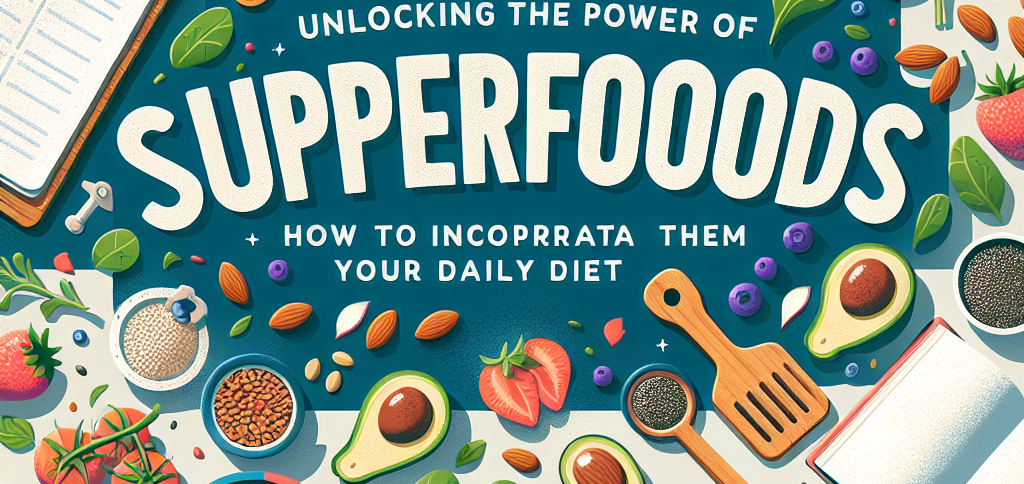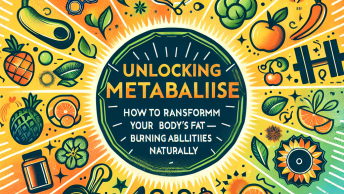The Ultimate Guide to Nutrition: 10 Key Insights to Transform Your Health
In a world overflowing with dietary advice and nutrition trends, it can be challenging to discern what truly benefits your health. Good nutrition is the cornerstone of a healthy lifestyle, influencing everything from energy levels to immune function. In this article, we explore ten crucial insights into nutrition that can help you make informed and beneficial choices for your wellbeing.
1. Embrace Whole Foods
Whole foods such as fruits, vegetables, nuts, seeds, whole grains, and lean proteins are nutritional powerhouses. Unlike processed foods, they are rich in essential nutrients and fiber. Fiber aids digestion, helps maintain a healthy weight, and reduces the risk of chronic diseases. Whenever possible, opt for foods in their natural state to maximize nutrient intake.
2. Understand Macronutrients
Macronutrients, which include carbohydrates, proteins, and fats, are needed in large quantities and provide energy. Balancing these macronutrients is key:
-
Carbohydrates are the body’s main energy source. Choose complex carbs like whole grains, which digest slowly and keep you full longer.
-
Proteins are crucial for building and repairing tissues. Include a mix of animal and plant-based proteins in your diet.
- Fats are essential for hormone production and brain health. Focus on healthy fats, like those found in avocados, nuts, and fish.
3. Pay Attention to Micronutrients
Vitamins and minerals, though needed in smaller amounts, are vital for bodily functions. For instance, calcium strengthens bones, Vitamin D supports immune function, and iron is essential for carrying oxygen in the blood. Ensure you’re getting a variety of vitamins and minerals by eating a diverse diet. Consider fortified foods or supplements if necessary, and Click Here to learn more about maintaining balanced micronutrient levels effectively.
4. Hydration: The Overlooked Nutrient
Water is often underrated in discussions of nutrition, yet it is essential for life. It aids in digestion, helps maintain body temperature, and transports nutrients. Aim for at least 8-10 glasses of water a day, and adjust based on activity level and climate. Remember that beverages like herbal teas and water-rich foods like cucumbers and watermelon also contribute to hydration.
5. The Importance of Portion Control
Understanding portion sizes can prevent overeating and aid in weight management. Use visual cues, like a deck of cards to measure meat portions or a tennis ball for pasta, to help estimate portions. Mindful eating—being aware of hunger and satiety cues—also plays a role in controlling portions naturally.
6. The Role of Gut Health in Nutrition
Your gut microbiome influences digestion, immunity, and even mood. Probiotics (found in yogurt, kefir, and fermented foods) and prebiotics (found in bananas, onions, and garlic) support a healthy gut flora. Ensuring a balanced diet filled with fiber-rich foods keeps the gut microbiome healthy and functioning optimally.
7. The Debate on Sugar: Natural vs. Added
While sugar is a carbohydrate and provides energy, excessive intake is associated with various health issues, like obesity and heart disease. Focus on natural sugars found in fruits and limit added sugars often present in sodas and sweets. Reading labels can help you become more aware of hidden sugars in processed foods.
8. The Myth of Dieting Trends
With countless diets promising quick results, it’s crucial to understand that sustainable, long-term health relies on balanced nutrition rather than restrictive diets. Diets like keto, paleo, and veganism each have benefits and drawbacks. The best approach is one that fits your lifestyle, meets all nutritional needs, and is maintainable.
9. The Connection Between Mental Health and Nutrition
Emerging research highlights the link between diet and mental health. Nutritient-rich diets, particularly those abundant in omega-3 fatty acids and folate, have been associated with reduced symptoms of depression and anxiety. A balanced diet contributes to better mood, reduced stress, and increased cognitive function.
10. Personalized Nutrition: One Size Does Not Fit All
Each individual has unique dietary needs influenced by factors like age, gender, activity level, and health conditions. Personalized nutrition considers these variables, providing a more tailored and effective dietary plan. Consulting with a nutritionist can help in crafting a diet best suited to your specific needs.
Conclusion
Prioritizing nutrition means making incremental, sustainable changes to your eating habits. By focusing on whole foods, understanding macro and micronutrients, staying hydrated, and considering portion sizes, you can significantly improve your health. Moreover, keeping an eye on gut health, sugar intake, and busting diet myths will empower you to make choices that benefit both body and mind.
For more detailed information about optimizing your nutritional habits and sustaining a balanced diet, consider exploring additional resources. Click Here to learn more about how you can tailor nutrition to fit your lifestyle and improve your overall wellbeing. Remember, a healthier you begins with the choices you make today.






